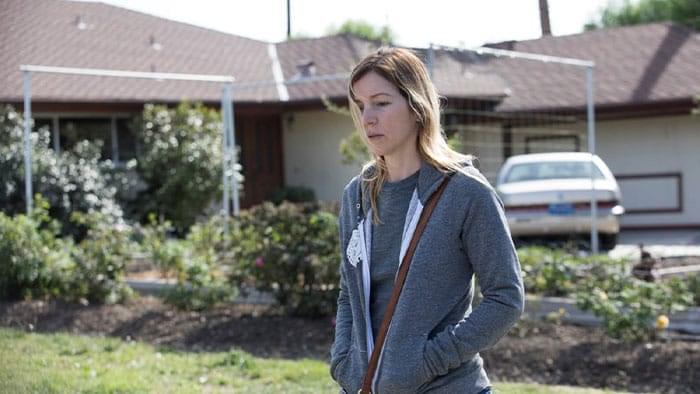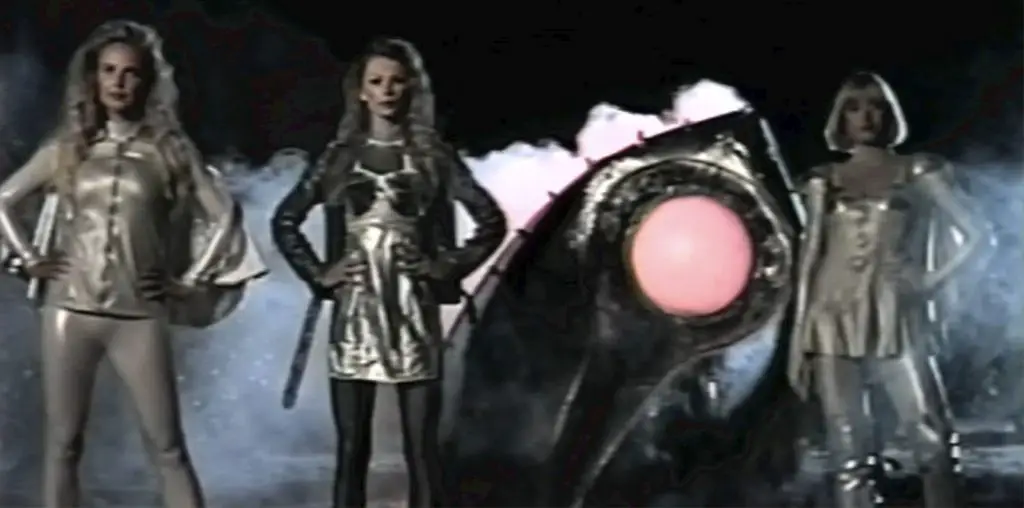
What was your inspiration behind that story? Was it a personal experience, or did it just kind of grow and evolve over time?
Kind of a little bit of both. A lot of the elements in the script are things that I have experienced in my life. It’s not a true story by any means, but for example, I used to be a nanny. I used to teach music to young kids. They came from different backgrounds or had differing abilities. Some kids had behavioral disorders, and some kids had physical disabilities. A lot of the characters in the film came from pieces of things I experienced. The first initial idea I had for this story was the idea of the relationship between a caregiver and the young girl she was caring for who had been sheltered by everyone else in her life. The idea that this caregiver treated her differently and was a little bit rough around the edges, but also refused to shelter her, refused to coddle her in the way that everybody else did.
And what would that be like for that girl? So that was the initial idea. And then I said, I wanted to make this character that I was going to play to make her really interesting and complex because as an actor, that’s what we crave. Then I thought, okay, who is this woman? Why does she act this way? And then I built out the world around that. You want to know, why is she like this? What’s her background? Did something just happen to her? Yeah. So that’s kind of how it all started.
What I also found interesting was the juxtaposition with the way she treated her own children versus how she gave much more time and attention to the special needs girl.
Yeah. I think that was really just her way of grieving. I did a lot of research talking to military widows. That is an element of the story that I don’t have experience with. The element that I did have was with the Papa Don character. My grandfather was a Navy chef and is loosely based on him. That was really my only experience with the military. One thing that I was surprised and not surprised to find out was just how differently people grieve and how different people deal with processing that information.
There’s a tendency for people to judge the Lisa character. Like, how could she be like that to her own kids? And you know, there were women I talked to that said they completely isolated themselves from their family. They went on drinking benders. They never drank alcohol before and totally went the other way. I think when we’re trying to grieve and process in a way that’s out of their own character. The idea of her connecting with Justine came from that. It’s just too painful right now for her to do that with her own family. My intention was for people to feel hopeful at the end for Lisa and for the kids and for the family because they’ve seen a glimmer of connection in her. In the fairy tale way, when the story continues after the movie, as you could imagine, she will come back to her kids, and she will come back to a place where she can connect with them.

“…eventually I hit a point where I decided, I’m going to start a production company, and I’m going to make this work.”
At what point did Justine the movie become a reality, in the sense that the script is done and you’re going to pull it together. You’re going to start paying producers or that there was enough faith to this can actually be a movie.
Like five years after I wrote the script. I was taking it around, trying to get producers to look at it. That was my first goal to get somebody else to produce the movie for me. Well, I tried that for several years. There was interest, but for one reason or another, no one came on board to do it. And so I kept going back and forth. I would take a break from looking at the script after getting no’s. It can be very discouraging. I would take a break and go work on something else for a while, and then I would come back to it.
I still felt like this is a story worth telling. So eventually I hit a point where I decided, I’m going to start a production company. I’m going to make this work. What’s the right budget for this film? At that point, I brought on our producer Louise Shore. She’s an amazing producer, and her background is in line producing and physical production. So she, at that point, was raising a little bit of money just to kind of get people to do the beginning steps of pre-production, like budget, schedules, you know, fee-based kind of jobs.
Once I kind of had an idea of what that was and knew how much money we had to raise, then that’s really when we were ready to go. I had the production company formed, and we started to go out to investors and say, this is what it would take to make it for, and we started to find people to give us chunks of money to get stuff going. I know the financial business part of movie-making is very daunting to me. You know, I like to create things, act in them, and be the storyteller. But the idea of making a movie and raising money was NOT something I wanted to do.
I didn’t know how to do it, and I luckily had people around me that just encouraged me to keep going. That’s something I would tell anyone else who’s in my position or wants to write something. There were times at the beginning where I said things like, what’s the point of doing this? What am I going to do? I don’t have the money. Nor do I have any investors. I don’t know investors. I think I would just take the next step, if you know what you want. If you know ultimately what you want to do, you might not know how to get all the way there to the end. You might not have the half-million dollars or whatever. You need to get to the end, but take the next step, especially if it’s something, you believe in it.


Thank you, Stephanie Turner, for making this wonderful film. I really connected to it. I’ve lost some important people and struggled with grief. I had hope for Lisa and her family at the end, and it also gave me a sense of hope too, that I’m going to be ok, that we can all come back. Also, I really connected with watching a complex female character. I grew up in the 80’s and 90’s too, and didn’t see enough women portrayed in this way in film, so I really appreciate it. Thank you. I appreciate how you kept pushing to make this happen, through all the uncertainty. Keep doing what you’re doing, don’t stop.
This is an amazing movie. My son in law recently lost his brother in a tragic accident. I’d been upset about him not engaging with his three sons and daughter. Much like the protagonist in this movie. It made me think about the grief process. I know how hard it is but I want him to bounce back and be there for his children. Maybe he can’t right now. Thank you for reopening my eyes.
Stephanie: Thank you for persisting and creating this quietly powerful little movie and getting it out there. It moved me and I connected with all the characters. You and all the other actors did an amazing job; the characters were all so authentic. I hope you continue with acting and writing and directing because you’re a natural; and yours is is a voice that’s special and needed in the world.
Was the actress in Justine truly handicapped?
Excellent!
WOW!
Stephanie Turner’s “Justine” is inf******credible!
Thank you!
Amazing!
I am in awe of Stephanie Turner for this story the film and her acting. You go girl!!!
Thank you